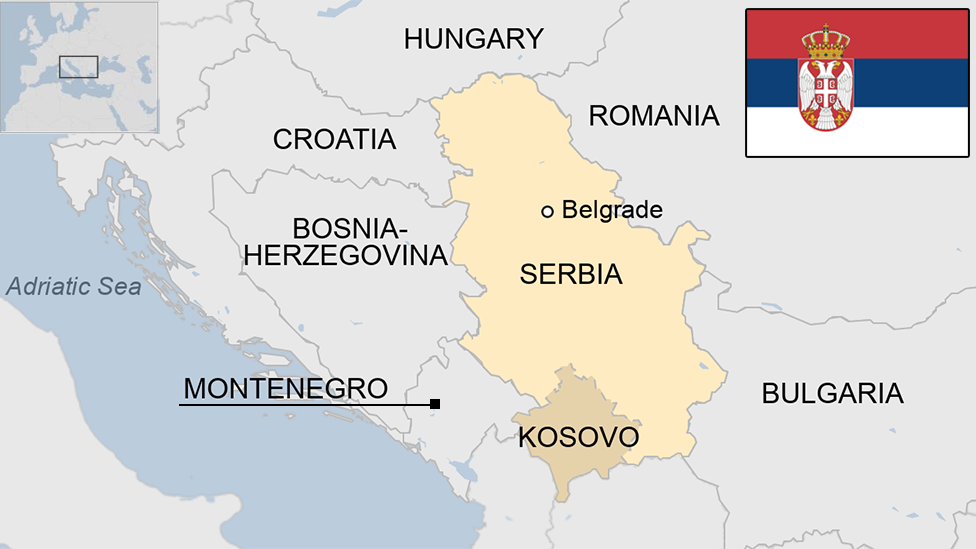Balkans floods: Appeal for aid as rescue continues
- Published
Guy Delauney travels in a rescue truck through one of the worst hit Serbian towns, Obrenovac
Serbia and Bosnia have called for international help to rescue people from inundated areas after the worst flooding since modern records began.
Waters are now beginning to recede, but officials say dangers remain.
They say that the threat of landslides is an ever-present problem as are the difficulties caused by unexploded landmines in Bosnia and river surges.
Serbia's main power plant is still at risk of flooding. Tens of thousands of people have fled their homes.
Bosnian Refugee Minister Adil Osmanovic described the flooding as "catastrophic".
Overwhelmed
Officials say that three months' worth of rain has fallen on the Balkans in recent days, producing the worst floods since rainfall measurements began 120 years ago.
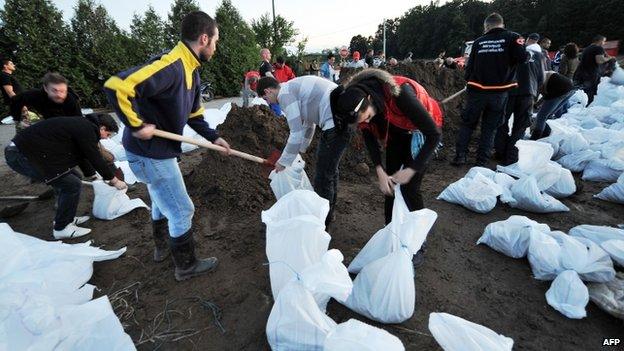
The town of Orasje in northern Bosnia is caught between the Sava river on one side and another flooding river, the Bosna, on the other
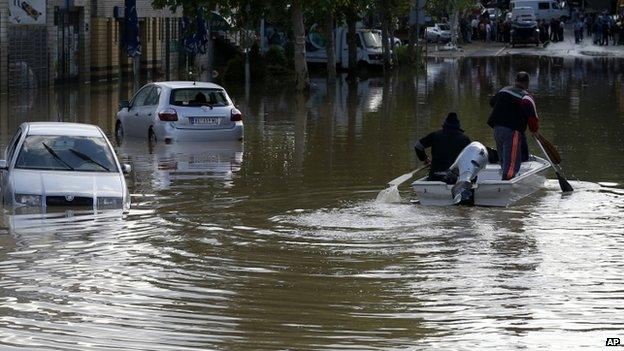
Serbian Prime Minister Aleksandar Vucic said on Sunday that 12 bodies had been found so far in Obrenovac, the town where the coal-fired Nikola Tesla power plant is located
At least 35 people have died - with more casualties expected.
A large international aid operation is underway, with rescue helicopters from the European Union, US and Russia evacuating people from affected areas.
But Serbian Prime Minister Aleksandar Vucic said Serbia now needed further help, particularly deliveries of food, clothing and bottled water.
The rain caused more than 2,000 landslides in hilly Bosnia, officials say, enveloping roads, homes and whole villages.
Rescuers are urging people to go to the balconies or rooftops of their houses with bright fabric to make themselves visible.
'Flood wave'
The north-eastern part of Bosnia is reported to be especially badly affected, with houses, roads and rail lines submerged.
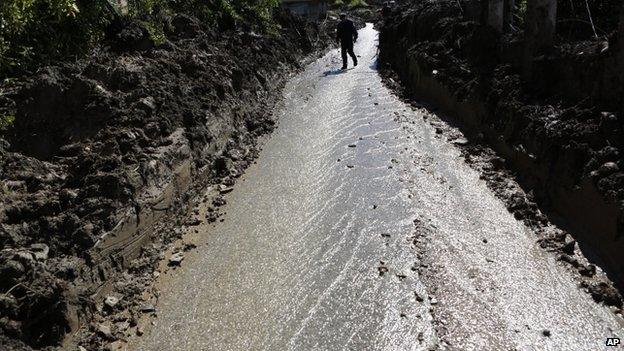
The flooding has not only left thousands homeless, but has done lasting damage to the infrastructure of the Balkans
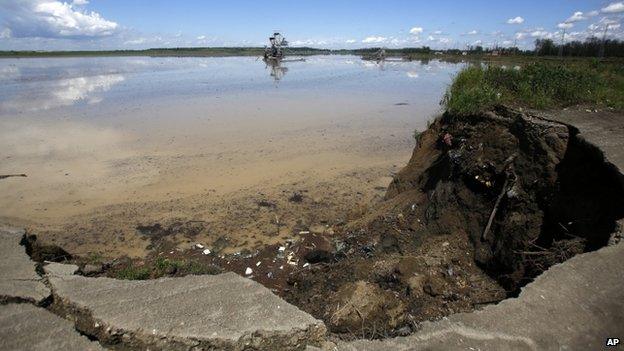
Damage to the coal mine near the village of Veliki Crljeni in Serbia is estimated at more than 100m euros ($137m)
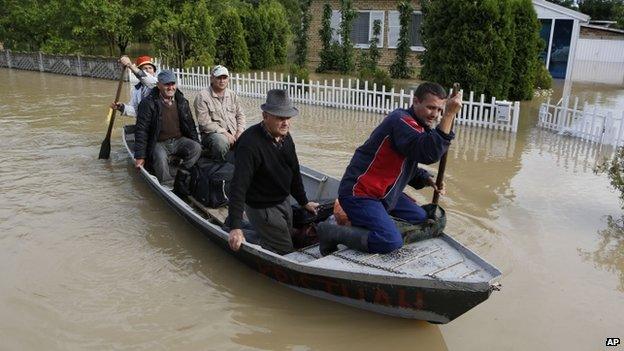
Thousands of people still needed to be evacuated from their homes in Bosnia on Sunday, fleeing the rising waters of the Sava River
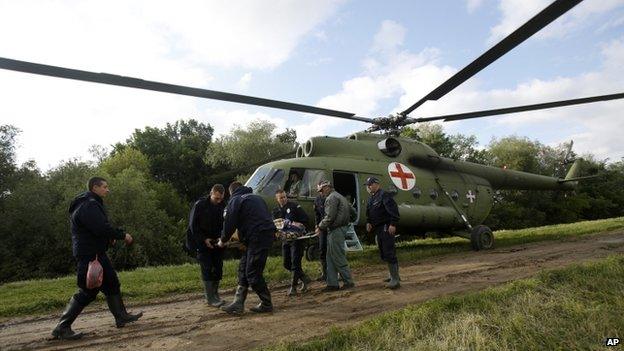
Hundreds of people have fled the flooded zone in boats and trucks - some of the more infirm have been evacuated by helicopter
Officials say that about a million people - more than a quarter of the country's population - live in the worst-affected areas.
The floods and landslides have raised fears about the estimated one million land mines planted during Bosnia's 1992-95 war.
Nearly 120,000 of the unexploded devices remain in more than 9,400 carefully marked minefields, officials say.
But the weather dislodged warning signs and in many cases loosened the mines themselves.
'Terrifying situation'
The flooding and landslide threat in Serbia is equally serious, made worse by the the constant threat of surging river levels.
Residents spent the weekend piling up sandbags in riverside towns - including Belgrade.
Mihajlo Andric from Osecina, Serbia, told the BBC that he was trapped inside his house for almost two days in a "terrifying situation".
"Roads and territory all around my area have been devastated by the floods," he said.
Novak Djokovic; ''It's been a very emotional week for me''
"We had no power, but luckily we had supplies. There are 15,000 people living in this town and many were badly affected by the flooding."
Serbia's state-run EPS power company said crews were doing all they could to prevent further damage to the Tesla power plant.
Parts of the plant and a nearby mine that provides its fuel were underwater. Damage to the mine alone is estimated at more than 100m euros ($137m).
Serbian tennis player Novak Djokovic has joined calls for help.
"Support and solidarity for my people in Serbia!'' he wrote on his Twitter account. , external
Large parts of eastern Croatia are also underwater, with villages still cut off and hundreds forced to escape the flooded zone in boats and trucks.
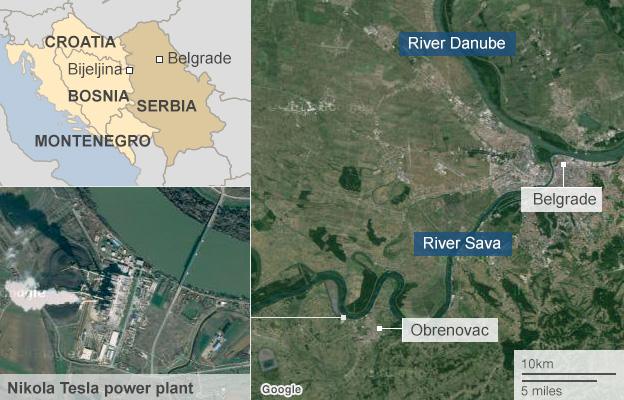
Are you in the area? Have you been affected by the floods? Send us your comments. You can email us at haveyoursay@bbc.co.uk using the subject line 'Balkans floods'.
- Published18 May 2014
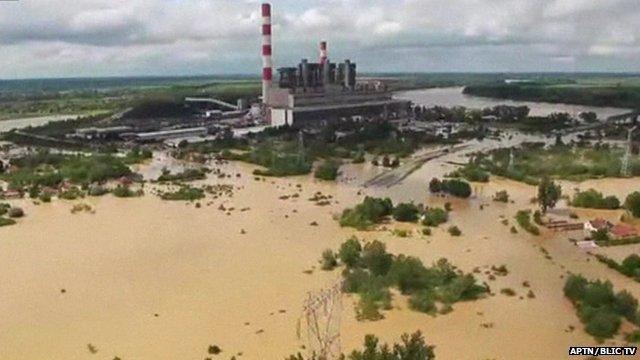
- Published18 May 2014
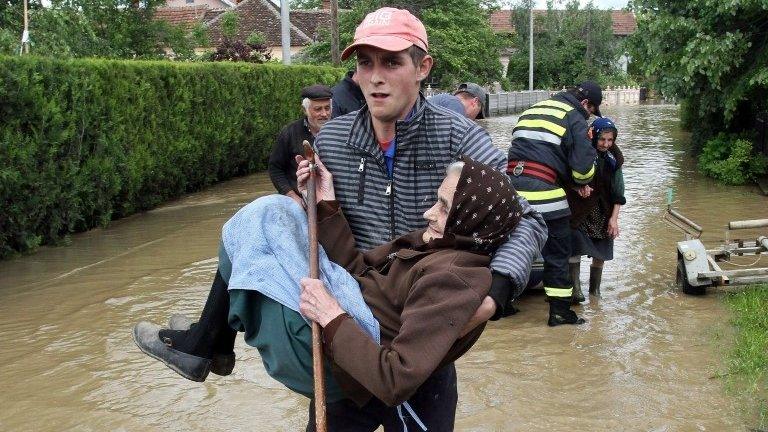
- Published17 May 2014
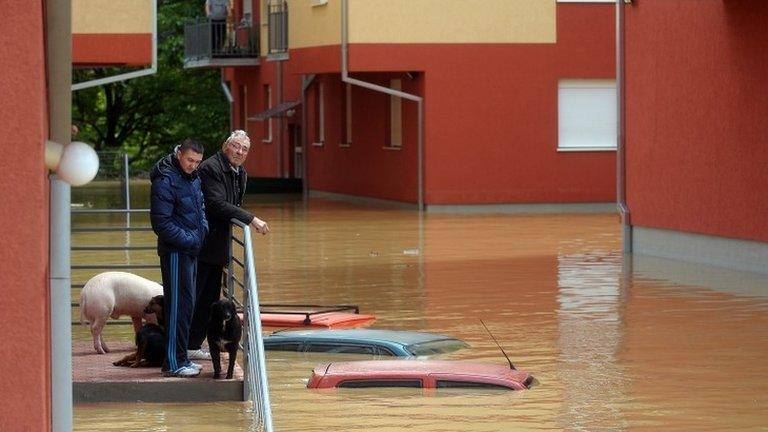
- Published29 November 2022
- Published28 January
